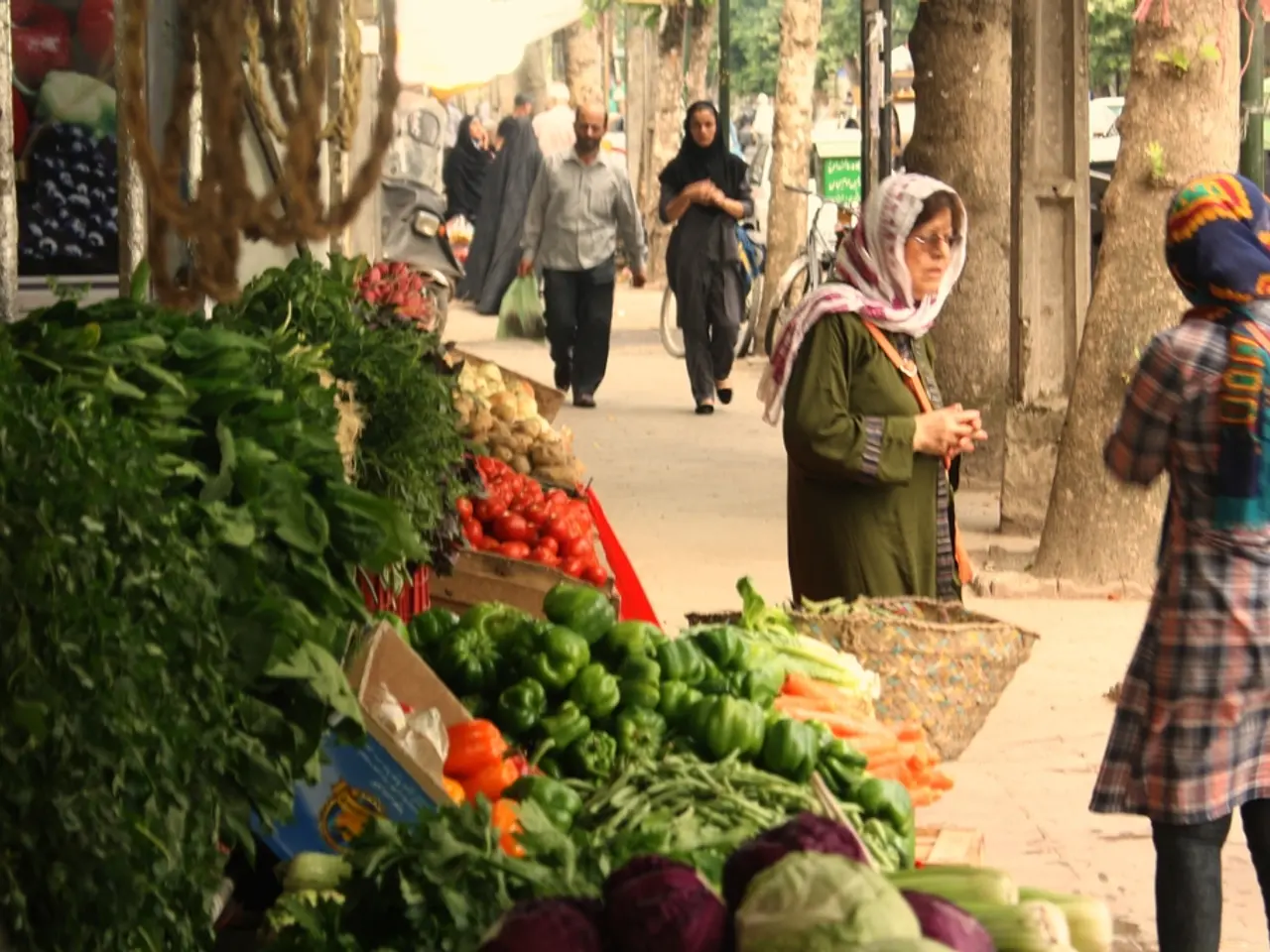Cash-in Opportunity for Thailand from Rapidly Aging Population
In the coming years, Thailand is poised to become a "super-aged society," with the elderly population set to expand rapidly. This demographic shift presents both challenges and opportunities, with the Thai government and businesses focusing on developing goods and services tailored to the needs of the elderly.
The Thailand Development Research Institute (TDRI) estimates that elderly consumer spending reached 2.18 trillion baht in 2023 and is projected to soar to 3.5 trillion baht by 2033, reflecting the vast market potential in sectors such as healthcare and elderly care services, recreational and social engagement services, and economic participation and workforce integration.
Healthcare and elderly care services cover medical products, healthcare innovations, and specialized elderly care services, including end-of-life planning. Recreational and social engagement services include knowledge-sharing platforms, activity groups, transportation for the elderly, and companionship. These services help the elderly stay active, socially connected, and involved in community life.
To encourage seniors to remain active participants in the workforce, policies are being developed to facilitate suitable post-retirement employment and extend the retirement age in both the public and private sectors. This economic participation is expected to contribute significantly to Thailand's economy, with income from elderly employment set to rise from 640 billion baht in 2024 to 880 billion baht by 2033, as an estimated 6.6 million seniors are expected to be working.
The report emphasizes the need for businesses to develop tailored housing options for low-income or specific-needs elderly groups, utilizing local materials and innovations. The study identified four key product and service sectors with high potential in the aging society: housing, food, health, and recreation.
To support elderly employment in the formal sector, policies should encourage "second jobs/careers" by preparing individuals with new skills and mindsets for career transitions both before and after retirement. For the informal workforce, developing both hard and soft skills, improving access to funding for entrepreneurship, and facilitating community-based job matching are essential to overcome travel barriers.
For services, enhanced access to financial products, insurance, and tourism infrastructure development are crucial in Thailand. A "generational approach" is needed to build health literacy and raise awareness of new goods and services among younger generations, who are the actual consumers.
The mechanism driving the silver economy must move away from a "silo" mentality, shifting from a welfare-oriented approach to one that actively fosters economic and social growth. The government could incentivize this by offering tax deductions to working-age children who facilitate access to relevant goods and services for their elderly relatives.
Conference participants underscored that building a robust silver economy starts with promoting good health from the "pre-aging" stage, ensuring a healthy elderly population capable of driving economic activity. The United Nations has designated 2001-2100 as the "century of the elderly," highlighting opportunities for seniors themselves to work in these areas, including developing community products, becoming caregivers, generating online income from hobbies, or becoming "Granfluencers."
In conclusion, Thailand is projected to tap into a 3.5 trillion baht "silver economy" within the next decade, driven by the rapid expansion of its elderly population. By focusing on the key sectors with high potential for growth, such as healthcare and elderly care services, recreational and social engagement services, and economic participation and workforce integration, Thailand can leverage this demographic shift to fuel economic growth and social development.
- The Thai government and businesses are leveraging the expanding elderly population as a vast market opportunity, focusing on developing goods and services in sectors like healthcare, Elderly care services, recreational and social engagement services, and economic participation.
- Recreational and social engagement services in Thailand might soon include transportation for the elderly, companionship, and knowledge-sharing platforms, aiming to keep seniors active and socially connected.
- Within the healthcare sector, specialized elderly care services like end-of-life planning are expected to see growth, while policies are being developed to facilitate suitable post-retirement employment, extending the retirement age in both public and private sectors.
- To support elderly employment, policies should encourage second jobs/careers for seniors by providing new skills and mindsets for career transitions, while addressing travel barriers for the informal workforce through developing hard and soft skills, improving access to funding, and facilitating community-based job matching.
- Enhanced access to financial products, insurance, and tourism infrastructure development are crucial in Thailand to support the growth of services within the emerging "silver economy." This can be further fostered by building health literacy among younger generations to raise awareness of new goods and services catering to the elderly.




